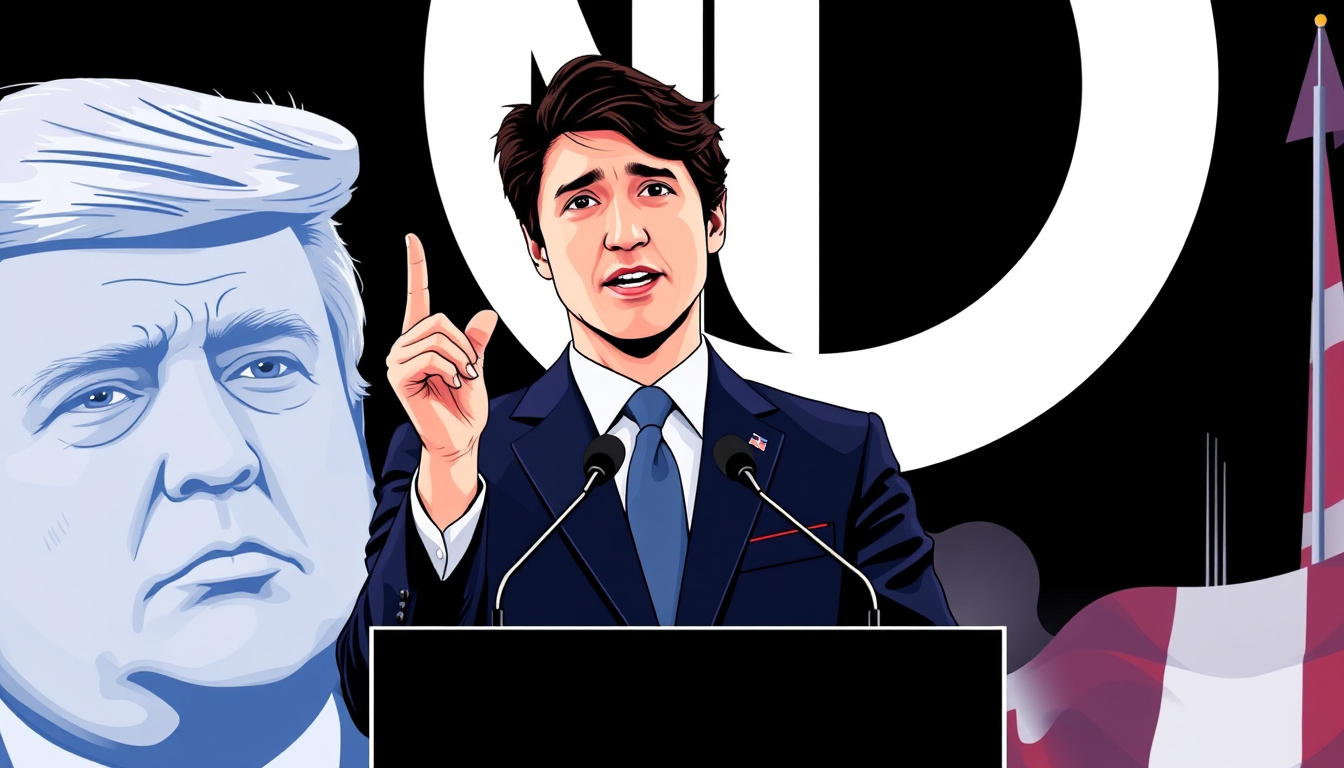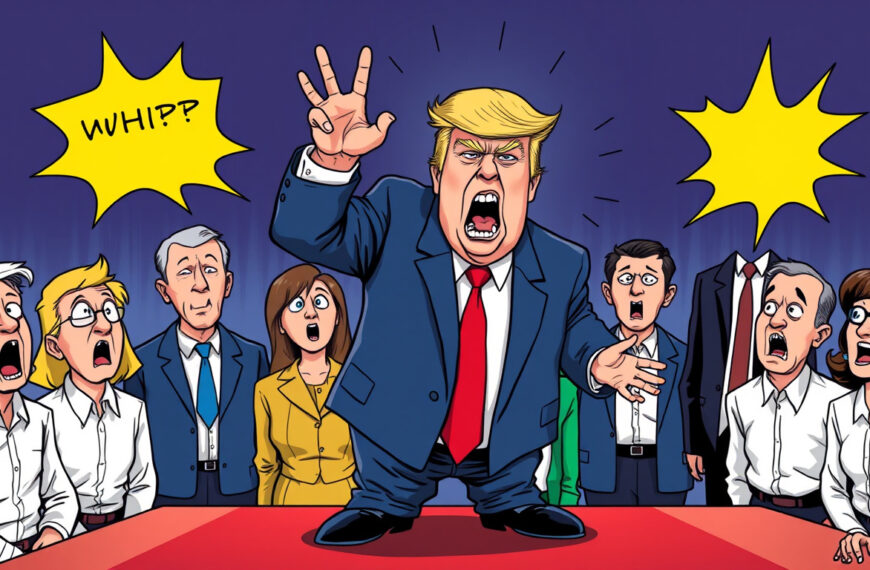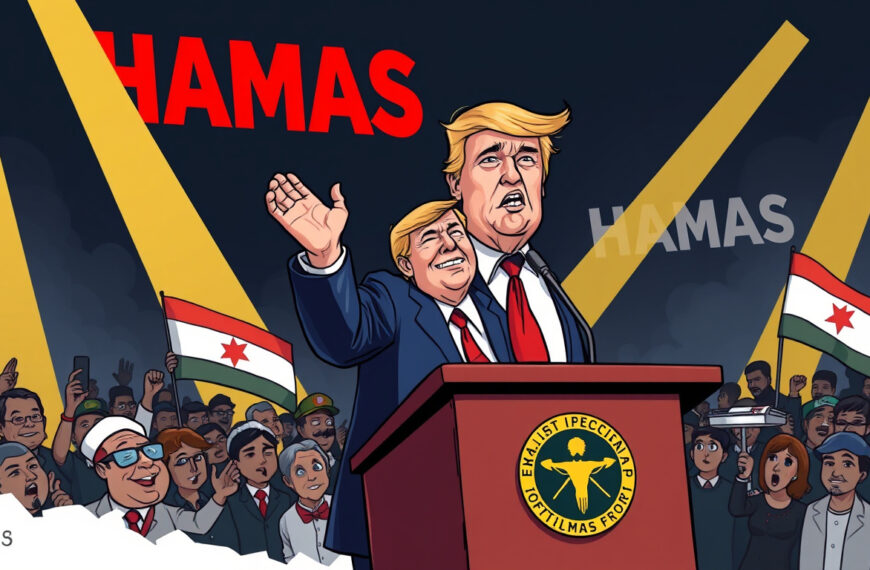In recent weeks, the trade relationship between Canada and the United States has experienced significant strain, particularly in light of President Donald Trump’s controversial tariff impositions. In response, Canadian Prime Minister Justin Trudeau has taken a definitive stance, directly confronting the implications of these tariffs on Canadian workers and the economy. This article delves into Trudeau’s response, the historical context of Canadian-American trade relations, and the potential consequences of the ongoing trade war.
Trudeau’s Direct Opposition
During a televised address, Trudeau articulated his disapproval of Trump’s tariffs, outright calling them a "very dumb thing to do." He emphasized the importance of collaboration between Canada and the U.S., highlighting the decades-long partnership that has fostered prosperity for North Americans. Trudeau’s rhetoric was not merely an abstract condemnation; he framed the tariffs as a divisive measure that could play into the hands of global adversaries who hope to see conflict between the two countries. His message was clear: unity is crucial during these challenging times.
Trudeau recognized that the impact of these tariffs would be harsh for many Canadians, stating, “this is going to be tough.” However, he reassured citizens that the Canadian government would deploy all necessary resources to support workers and businesses affected by this economic fallout. Measures planned include expanding Employment Insurance (EI) benefits and providing direct support to businesses, reinforcing his commitment to protect Canadian jobs from potential economic threats posed by trade wars.
The Trade War Landscape
The backdrop to this confrontation lies in the broader context of international trade dynamics. Tariffs, while often touted as a mechanism for protecting domestic industries, can create a ripple effect that destabilizes economies. Economists from across the ideological spectrum have raised concerns that such moves threaten a robust and balanced trade relationship.
Eddie Glaude Jr., a professor at Princeton University, noted that the tariffs enacted by Trump would likely inflict pain on American consumers and businesses, undermining the very fabric of continuing U.S.-Canada trade. The lack of proactive communication regarding the American government’s responsibilities to its citizens stands in stark contrast to Trudeau’s approach of transparency and assurance, suggesting a disconnect in leadership styles.
The Psychological Realm of Trade Politics
The heated exchange between the leaders of Canada and the U.S. also highlights the psychological dimensions of trade politics. Trudeau’s strategy of directly addressing Trump was a calculated move to gain the President’s attention, knowing that Trump often consumes conservative media where such commentary could reach him. The implications of this strategy are twofold: it reinforces Trudeau’s leadership narrative domestically while attempting to challenge Trump on the international stage.
The continued tension between the two leaders is indicative of a larger political spectacle, as both leaders stake their claims to their respective bases while managing the economic repercussions of their decisions. Trudeau is positioned as a defender of Canadian interests, in stark contrast to Trump’s divisive rhetoric, which often seeks to galvanize support through grievance.
Future Implications
Looking ahead, the ongoing trade war and tariff impositions may lead to further deterioration of U.S.-Canadian relations, especially if neither side opts for negotiation. Potential repercussions include job losses in key sectors, increased prices for consumers on both sides of the border, and a fracturing of long-established economic ties. As Trudeau has assured Canadians, the government is committed to safeguarding their interests, but the long-term effectiveness of such measures will depend on the evolution of U.S. trade policies.
In conclusion, Trudeau’s bold rejection of Trump’s tariffs is a pivotal moment in the current state of affairs between Canada and the United States. It reflects not only a defense of Canadian economic interests but also a call for unity against divisive tactics that threaten cooperation and prosperity. As the situation develops, it will be essential for both nations to navigate these challenges carefully, considering the broader impacts on their economies and international standing.
Ready to get in the game and start making money on Pump.fun? DogWif Tools is the #1 memecoin sniper tool for becoming a Pump.fun millionaire. Get DogWif Tools today and become a memecoin dev!








